
Director of Photography
Five old men and a kid are travelling in a train's cabin without purpose. They travel because it's free and they don't have another place to stay. From their conversations we learn the tragedies of their lives. Also the hidden interlockings of their faith will out slowly.

Director of Photography
A family of boisterous children expect their father to organize a really exciting holiday. So when the chance comes up of spending it on a boat, the Ramona, it seems that the problem is solved.

Director of Photography
Tomboy accidentally found a fake dollar and gave it to detective Droplet. The operation is headed by Maj. Kardos. Now they have to investigate the crime in order to find and neutralize the counterfeiters.

Director of Photography
The elite of political and business life of the country town gather to celebrate the namesday of László in the luxury villa. Everything begins just as usual, but now an incident disturbs the stag party.

Director of Photography
Kohán Imre, an adolescent kid under state care, is taken to the school resort house in the Bükk mountains with tuberculosis. He falls in love with Nurse Katica, not much older than him, and she makes friends with this open and sincere boy. Imre also finds friends among his class-mates and gains recognition for his brave behaviour.

Director of Photography
When a young boy comes in to see a doctor abourt a red mark on his face, the doctor's wife welcomes him into the consulting room instead. As they talk, she offers him something to eat and then notes that his manner of eating is just like that of her previous husband, who died in prison many years earlier. It turns out that the young man had been his cell mate for a year, and he tells her the story of how her husband died. She then remembers (in flashbacks) how she had helped her first husband rid himself of his sexual repression, and how she had promised him she would marry her current husband if she were widowed. It seems her doctor-husband was a man who could remain untouched through any political climate, and was much admired by her first husband. Now that her memories have been awakened by the young man's account, she ignores the repeated phone calls of her current husband and decides to rid this young man of his own sexual repressions.

Director of Photography
1943. French POWs escape through Hungary towards the Balkan. Jacques and Gérard are caught and taken to an internment camp at Lake Balaton. Jacques meets Klári here, who was abandoned by her military officer husband for her Jewish origin. Both want to have a short affair, but love unfolds between them.

Director of Photography
1918. Fábián Bálint is forced to kill humans on the Italian front. At home his sons drown the priest, the lover of their mother, in the river Kraszna. Mrs. Fábián turns insane. Following his arrival home Bálint becomes the liveried coachman of the baron.

Cinematography
This film takes place in Paris and Geneva in the 1530s and 1550s. Kálvin János and Szervét Mihály are school mates in Paris. The university students celebrate the victory of the Reformation with Kálvin's "Institution", written under a pseudonym.

Director of Photography
A group of landless Hungarian peasants accept work as migrant-laborers on a farm in northern Germany where the wages are good, and the wives and family are allowed to accompany them. Though it is in the midst of World War II, they are relatively well-off. However, they glimpse the treatment accorded to POWs and others who are not so gently treated, and at the conclusion of the year's harvest, they choose to return to Hungary and are quickly swept up in the tides of war. This film is part of a series of films by award-winning, well-respected director Zoltan Fabri who devoted much time and effort chronicling the struggle against fascism.

Director of Photography
The university student couple, Andris and Mari, cross Nemesbérc during their summer vacation, to hasten the laying of a memorial stone to the memory of András's martyr father.

Director of Photography
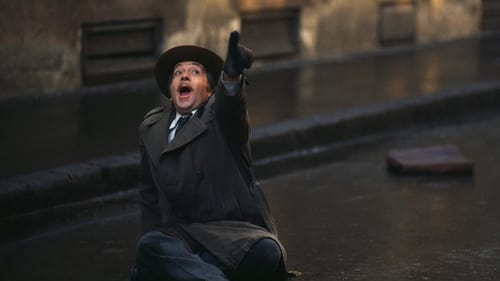
Director of Photography
Ambientada en Budapest a finales de la Segunda Guerra Mundial. Un grupo de amigos dialogan una noche en un bar. Uno de ellos propone un dilema moral: Si volvieran a nacer, qué preferirían ser, un cruel rey que comete todo tipo de atrocidades o el esclavo que las padece..

Cinematography

Director of Photography
This lavishly spectacular film focuses on the character of Lorinc Parcen Nagy from the 1200-page Tibor Déry novel interwoven with numerous autobiographical elements. Lorinc Parcen Nagy is the offspring of an upper middle class family, whose life is marked by two violent deaths: the suicide of his father and the slaughter of an innocent worker. He breaks with his family and his mother in disgust; she is of weak character, a person who abandoned her own husband. He is also unable to discover the right tone with his colleagues and his lover who is an illegal party worker.

Director of Photography
Bátky János a 20th century intellectual studies the secret of the Rosicrucians in London libraries during the day and in the evening takes pleasure in the "decent" everyday joys offered by the fair sex. He gets involved in the wildest ghost-story in the mysterious Wales castle of the Pendragons, where Earl of Gwynnedd from the 18th century is making experiments to prove his ancestors' slogan, "the resurrection of the body". In the meantime St. Claire, a beautiful, demonic woman and her companions try to kill him for the huge legacy.

Director of Photography
Luciano, the clown of a circus, can predict who will win in the snooker. His mathematical algorithm seems to be working in every gamble provided that the gamma factor is present. This latter is a woman in the bed. He uses his special skill for his country therefore he, as a secret weapon, is moved to the west with three support staff. The goal of their task is to plunder Western Europe. The plan works and Bondoros, the city he came from became a metropolis. Does it look like a dream?

Director of Photography
Baradla Géza, war criminal, returns after 25 years, with his ex-accomplice, Obrád Simon, to the village where he burned houses with people inside and executed partisans. The ex squad-leader is chased to this place by his "heroic deed" and the memory of his love. Like a maniac, he wants to forgive the village residents for having killed six of his soldiers.

Director of Photography
The story of the film with a touch of journalistic atmosphere takes place in the autumn 1919 after the fall of the proletarian dictatorship. The main figure is Zilahy Kálmán, a high-school teacher, very much attracted to Ady's ideology. He is, at the same time, a rational minded sober character keeping a certain distance from the chaotic events. During the first months of the terror of the Whites, he takes a stand for his persecuted colleague, and with his wife's help, he hides Pálos, a Communist commissar in his flat.

Director of Photography
The head of the nunnery is dying, and the members are divided in two groups as the election of the new head approaches. Led by Virginia, the younger nuns stand up for changing the strict religious dogmas and would like a modern school with genuine science, a bathroom to be built, and a freer spirit. Their candidate is sister Magdolna, who went to secular universities, too. The seminarists, led by Király Erzsi, also rebel against the older nuns' strict discipline and the depressed atmosphere of the institution. However, Magdolna does not want to stay involved in the fight because she is deterred by Virginia's sinful attraction towards her and the tools Virginia is using to gain victory at any price.

Director of Photography
The main characters of this satiric story poking fun at domestic labour ethic are two cleaners of the mains. Jeromos and his son drop in to doctor Katona's in order to clean the shit pit decorating the end of the garden. During the day work is being done in a very time consuming way, materials are missing, and the boss devotes more attention to his love affairs than to supervision.

Director of Photography
Aunt Ilka, who likes company, opens her house standing in the middle of a six-acre rose garden in the little town for the golden youth of the town. As a result of her benevolence, the tenants are in the position to adore not only the roses but a nice bunch of to-be-married girls of the town.

Director of Photography
The film is a story of a double journey. The main character of the first journey is the author himself, who, while sitting in his customary café, suddenly realises that he has hallucinations. The psychologist reassures him that all this is merely repression. The symptoms, however, appear again. Soon it turns out that the author has a brain tumour. Professor Pötzl in Vienna suggests operation right away. The intervention, through which he is awake, is carried out in a Stockholm clinic.

Director of Photography
La acción transcurre en mitad de una guerra, de cualquier guerra. Un comandante del ejército, mentalmente desequilibrado, va a descansar a un pequeño pueblo donde vive la familia de uno de los soldados que están bajo su mando. La familia lo acoge en su casa y ahí comienza el esperpento… la tragedia.

Director of Photography
This grotesque historical film is a caricature of the narrow-minded and careerist oligarchs of the 20s. A young military officer stops the young jurist from killing himself and recommends him to his commander, lieutenant-colonel Doborján as a typist.

Director of Photography
SS doctor during the war worked on the serum of cancer, but discovered a terrible poison, one vial is enough to kill 100 000 people. 20 years after the war, the old Nazi gets out of prison, and the hunt for him and his discovery begins.
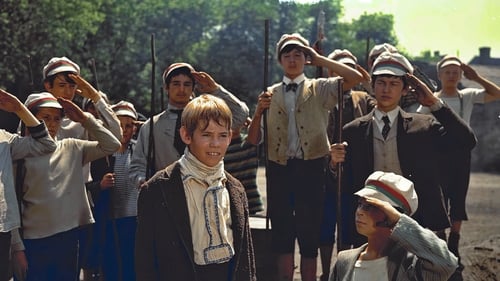
Director of Photography
Historia de dos bandas rivales de jóvenes basada en una novela de Ferenc Molnár.

Director of Photography
The engineer Ambrus has been suspended in his job because he publicly called the attention of the customers to a construction mistake of some goods designed to be exported. His immediate boss learns the news on a business trip to Paris. He meets his old friend Lendvay, an emigrant from Hungary, and his French wife in a cellar bar. After their talk Benkő starts seeing things in a different perspective. When he returns home, he decides to take a stand for Ambrus against Ferenczi, the general director, despite his wife's and the old director's advice.

Director of Photography
Kerekes (Antal Pager) believes he is wanted by the police when his friends play a practical joke in this unusual comedy drama. He returns to his hometown where he was accused of turning a Jewish druggist and the druggist's wife over to the Nazis. With his friends following him, Kerekes tries to find out what became of the couple after they were deported. After being subjected to a mock trial by his friends -- and found guilty -- Kerekes becomes despondent and attempts to kill himself. Flashbacks and hallucinations are employed to tell this story that occurs during the Eichmann trial. Both the film and Antal Pager gained some unwanted publicity when a Variety article from April 23rd, 1967 accused Pager of being a Nazi collaborator for his role in an anti-Semitic film during World War II.

Director of Photography
The film is put at the beginning of the century in Sárszeg, following the humiliation and collapse of a high-school teacher.

Director of Photography
When András, Albert and Bence are on a cycling tour around Lake Balaton, their dreams come true. Sunshine, beach and pretty girls. András and his younger brother run after the same girl, Eszter. András persuade his brother not to pinch the girl. András pick her up one night and split up with her next day. Eszter follows the boy, but András sends her away...

Director of Photography
Based on a novel by Dezso Kosztolani, this Hungarian drama is set at the turn of the 20th century. A young, homely woman lives at home with her mother and retired father. Because of all the care the girl provides for her parents, the couple becomes detached from the world outside their home. When the girl leaves for a short visit to her uncle's home, the parents realize the extent of their separation from society and their selfish feelings toward their own daughter.
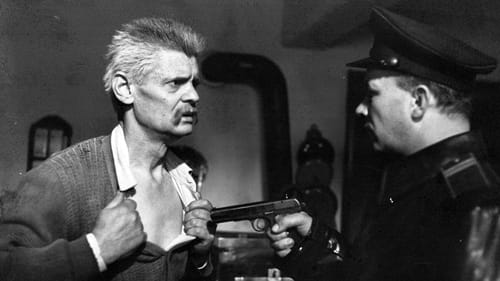
Director of Photography
A crusading newspaper reporter covers the Soviet invasion of Hungary in 1956. Initially critical of the communists, the feature later espouses the virtues of the social changes implemented since the invasion. The title refers to the period of time the reporter spent interviewing witnesses to the invasion.

Director of Photography
The chroniclers are diligently scribbling the history of life and deeds of the virtuous and wise King Matthias, who, in the meantime, sneaks out of the palace in disguise. Instead of attending a boring reception of the imperial deputies and papal legates, he pays his address to three pretty women from Szelistye.

Director of Photography
Terpinkó, the bragging man of muscle likes womanising linked with betting: conquering is a great fun for him. He bet one to a hundred on his new boss, Éva. But the wife of the engineer handles all his tricks with annoying benevolence. Terpinkó falls in love with her and therefore he cannot stand her not returning his feelings.

Director of Photography
The film depicts the period between 1945-60 through the life of a communist couple. Barna Judit, just released from a concentration camp and Horváth László, with an illegal past are brought together by the communist movement. They study and make plans together in the hope of a future that will make sense. The marriage they just entered, however, gets ruined soon by the events of history.

Director of Photography
Jirka is a composer, his wife, Jana, a pianist. Jana would like to have an own concert, but so far she has only been selected to accompany Valenta during his concerts in Budapest. After some resentments, she accepts the proposal.

Director of Photography
Bene, tired of the professional battles of engineers and trying to escape a ship-wrecked marriage, asks to be transferred to the country. The gravest problem of the sandy region in Nagyalföld (Great Hungarian Plain) is the shortage of water. The tireless director of the local state farm asks for Bene's support, but the disillusioned man refuses him.

Director of Photography
The grey hero of grey workdays, the divorced cashier of a cinema who is always willing to sacrifice herself for others, Etelka, is awarded a two-week-holiday at Lake Balaton. Following the advice of her female friend, she tries to live life at full speed.

Director of Photography
During World War I, an ancient feud divides the industrial area in the county of Nógrád. The workers of the steal factory start a strike, but the miners do not support their cause. Sanyi from the steal factory and Ilonka from the mining community fall in love with each other, but can only meet secretly. When the boy dances with the girl in the pub of the miners, he is recognised and knocked down.

Director of Photography
Vetró János, the lorry driver, is an alcoholic. His marriage is in pieces, his wife has a lover. Their son suffers an accident. The next day his wife moves out. In his desperation, Vetró drinks even more, and leaves his work as well.

Director of Photography
Daddy Kárász, the stakhanovist worker, complains in a television interview about the fact that his family, consisting of many members, cannot get a home on their own. Kéri, the chairman of the local authority, promises to help him on the condition that if he does not, they may move in to his villa at elegant Pasarét. Nothing happens, therefore the Kárász family takes Kéri by his word. From this time on, tumultuous scenes and frequent quarrels take place in the villa between the two families.

Director of Photography
Csepel, 1945. The Csűrös family, in addition to their three children, give accommodation to the orphaned Jóska, although they themselves struggle with difficult circumstances. The boy lends a helping hand in the factory during the days.

Director of Photography
The old, sickly Demeter Lapussa is a tyrant in the family. He forces his granddaughter, the beautiful Henriette, to marry baron Hátszegi, although the girl loves the penniless Vámhidy Szilárd. The two lovers attempt to commit suicide, then are torn away from each other.

Director of Photography
The "sleepless years" in this propaganda piece by director Felix Marlassy occur on Csepel Island, an island south of Budapest that is home to an armaments factory. The factory workers are shown being exploited by imperialists, capitalists gone berserk, and fascists, more or less in that exact chronological sequence. The heavy-handed approach does much to undercut the belief that when socialism finally takes over, the lives of the workers are brought up to a human level. In this instance, audiences might prefer a more nuanced and subtle statement, no matter what the message.

Director of Photography
Three people – a returned prisoner of war, his beautiful second wife, and the possessive, hunchbacked spinster who is his sister-in-law by his first marriage – are isolated in a little house under an extinct volcano, where each strives for personal happiness but is suffocated by their dependence on the others.

Director of Photography
A comedy about a lost inheritance, love and a red umbrella, which, according to a local legend, belonged to St. Peter himself.

Director of Photography
Life is on in the old house of Vizváros. Kids play on the ground. The adopted son of the janitor, Matyi, is hopelessly in love with Juli. He would like to emigrate to America with her. She prefers Janó, the driver, a great womaniser.
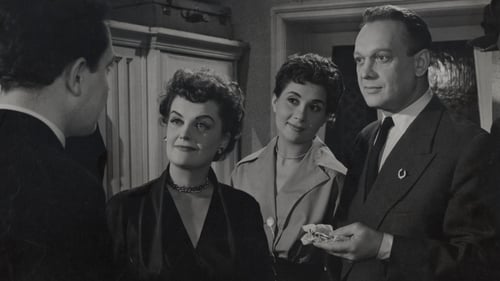
Director of Photography
Varsa engineer receives the Kossuth award for his excellent work. His career once began at the family enterprise of his wife, so the woman invites her relatives for a dinner party.

Director of Photography
The tyrannical king is afraid of his people. He can only find peace if everyone wishes him well when he sneezes. Catchpoles raid the country and give orders what the king wants.

Director of Photography

Director of Photography
The young worker Tóth Gáspár gets into hospital with stomachache. During the night his state is worsening. The doctor on duty, Málnási does not attend the patient despite the call of the nurse, for he spends the night with nurse Margó.

Director of Photography
At Christmas Eve in 1944 the runaway Pintér and Gozsó get through the Soviet blockade around Budapest. Pintér intends to hide in a flat abandoned by his own relatives, but he finds his relatives called the Turnovszkys, who are hiding the Jewish Jutka as well. Love unfolds between Zoltán and Jutka.
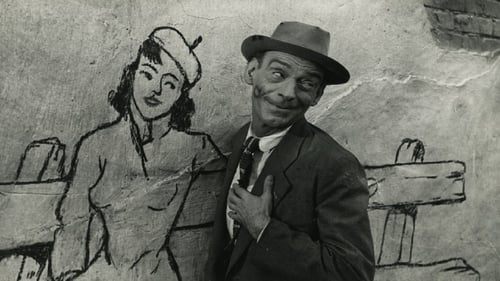
Director of Photography
On the Spring of 1945 the Jackson circus is heading towards the border with the clown Peti and Aida, the elephant. They have to play for the Hungarian Fascists, while Peti is hiding the Jew Annuska and Sanyika.

Director of Photography
Kiskrajcár is a 1953 Hungarian film directed by Márton Keleti. It was entered into the 1954 Cannes Film Festival.

Director of Photography
In the vocational school the professionally excellent Dani János works on his own invention in his leisure time, but he does not like learning. However, even his own father learns in the evenings, he will become a teacher.
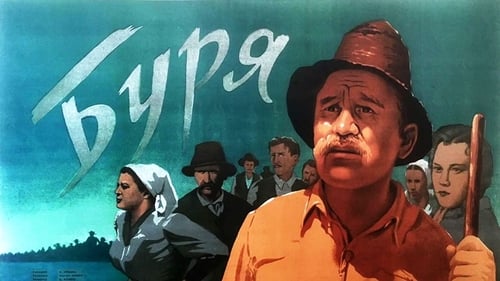
Director of Photography
Vörös Hajnal (Red Dawn), a co-operative is the venue of skylarking, while the storm destroys the wheat which is to be harvested soon. Árendás, a middle-peasant, voices severe accusations against members of the co-operative: out of negligence, they failed to keep the ditches clean. It is always the soft option they seem to favour, while the necessity of properly taking care of the farmlands is long-forgotten. Members of the co-operative and the village people are deeply divided.

Director of Photography
Pista Rácz, bearer of the title "outstanding workman" is opposed to all forms of sport, and is especially antagonized by Jóska Teleki, a first-class sportsman, who seems to be a drawback for Rácz's brigade in terms of work quantity performance figures.

Director of Photography

Director of Photography

Director of Photography
A female worker in Socialist Hungary gains the acceptance of her male colleagues.






















































